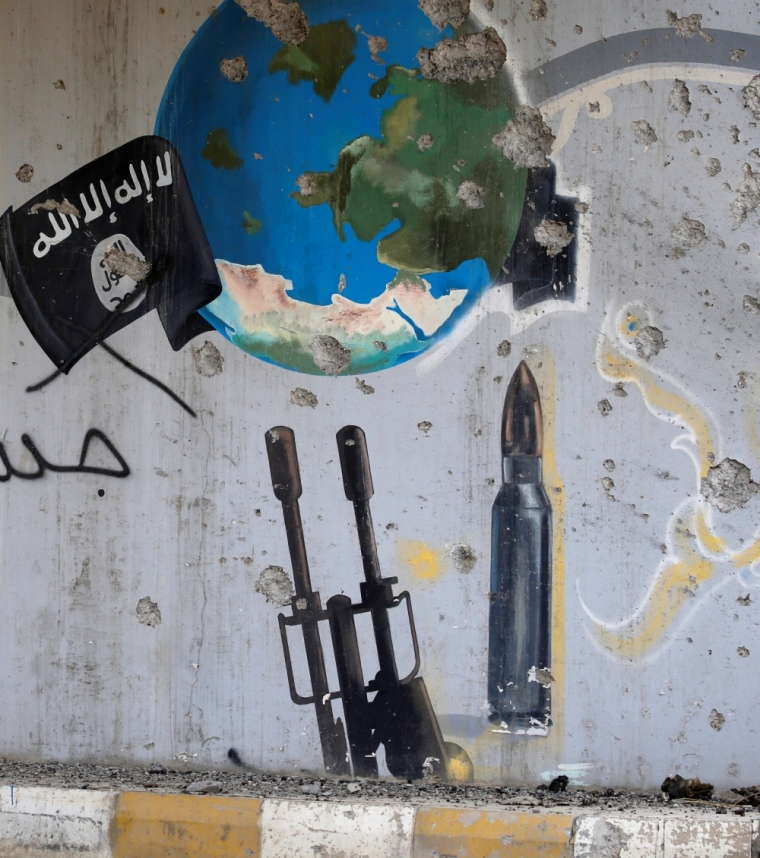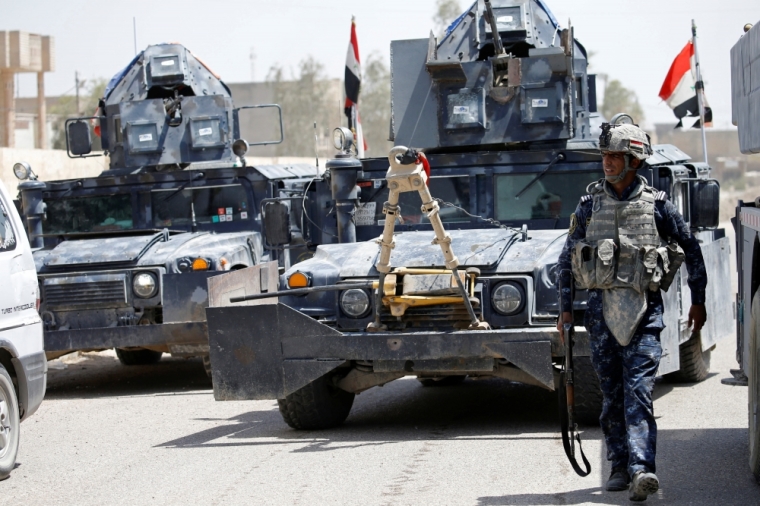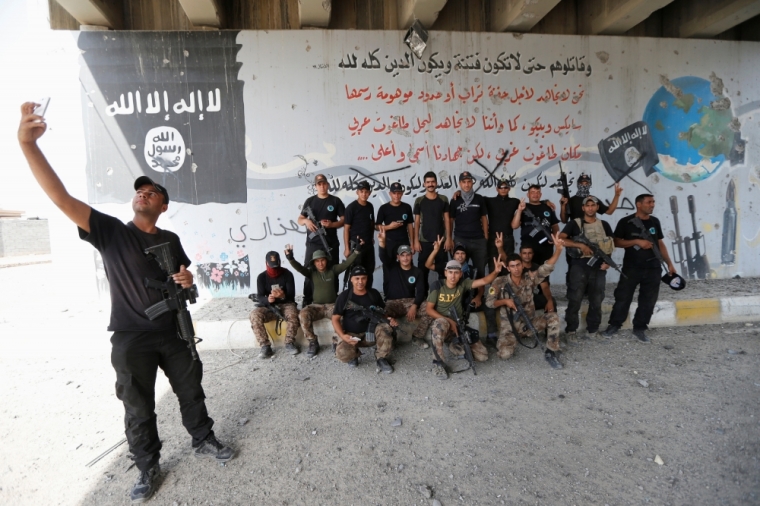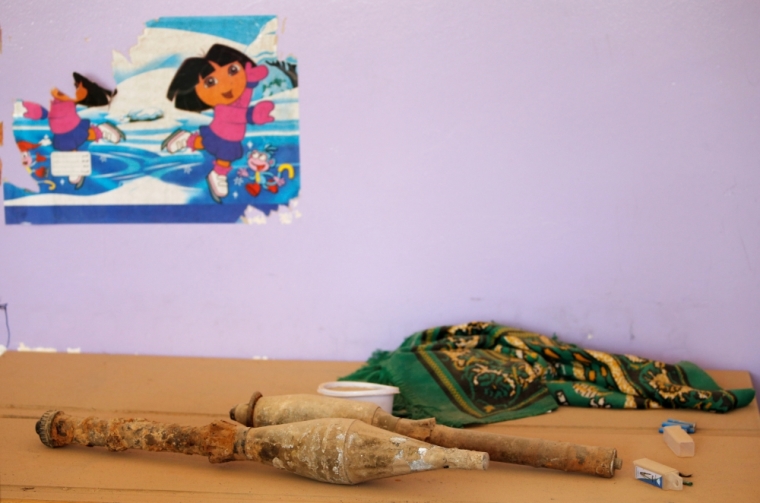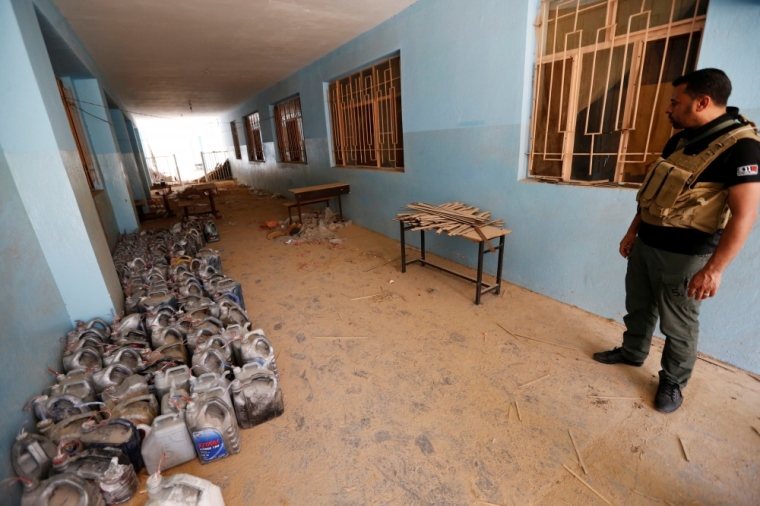Fallujah's Displaced Residents Facing 'Inhuman Conditions' Despite Liberation From ISIS
The city of Fallujah in Iraq has reportedly been "fully liberated" by Iraqi military forces following five weeks of intense battles with the Islamic State terror group, but grave concerns remain for the thousands of refugees who have been forced to flee.
Lt. Gen. Abdul-Wahab al-Saadi, head of counterterrorism forces in the operation, said the battle for Fallujah "is done, and the city is fully liberated," The Associated Press reported. Prime Minister Haider al-Abadi visited Fallujah following its liberation on Sunday, and is now looking to retake Mosul, Iraq's second-largest city.
A heavy military offensive backed by the U.S. and other international allies has seen IS pushed back in a number of territories in recent months, though the terror group still remains in control of major cities in both Iraq and Syria.
While al-Abadi has called or residents in Fallujah to celebrate the victory over IS, tens of thousands of people from the area have been forced to flee their homes, with many seeking shelter with limited resources in the Anbar desert.
Shaker Mahmoud Hadi, an aid worker with the Iraqi Ministry of Migration and Displaced, told the Qatari government news agency Al Jazeera that many of the displaced families did not even have tents, warning that the situation is "really catastrophic."
"The resources are not enough, we can only provide for 30 percent of the displaced." Hadi said. "In Amiriyat al-Fallujah, the mosques are urging people to donate to help the displaced. Many responded by opening their houses to host families from Fallujah. But that is not enough."
Sabah Hassan, an elderly citizen of Fallujah, said the displaced have had to endure "inhuman conditions," and argued that civilians are being forced to pay the price of the ongoing conflict.
"It is the holy month of Ramadan, and we are fasting. We barely have enough food in the camp, and the water is very scarce. We suffered from the lack of food supplies for months in Fallujah, and it seems our agony isn't ending any time soon," the man added.
Besides the lack of food, humanitarian relief agencies also have concerns about the medical needs of the people.
"Most of the families in the camps haven't had proper medical care for almost two years, and that puts in danger all those who have chronic diseases, while the health of the children is being compromised," said Red Cross spokesman Ralf al-Haj in Baghdad.
United Nations statistics have shown that over 3.3 million Iraqi citizens have fled their homes since IS began conquering territory in the country in 2014, with over 40 percent of those from the Anbar province.
AP noted in a separate report that although the Iraqi army achieved an important victory in liberating Fallujah, soldiers will also be tasked with preventing jihadists from returning to the city. What is more, the displaced will need to be provided a safe route back to their homes so they can rebuild what has been destroyed.
U.S. Army Col. Christopher Garver, a spokesman for the American-led military coalition, said that recapturing Mosul would pose an even bigger challenge.
"Mosul can be a nastier fight than what we saw in Fallujah," Garver said. "If that's the Iraqi capital of the caliphate one would expect them to fight hard to maintain that."









